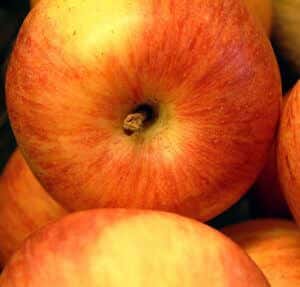
When allergy season arrives, what you want is relief. What you don’t need is an interaction between your medicine and the beverage you use to take it.
Years ago we were contacted by a grieving widow. She told us that her husband was in very good health except for allergies. The only non-sedating antihistamine on the market in that time period wasterfenadine (Seldane). It was a hot day and he was cutting the grass. He loved grapefruit juice and drank it several times a week. On this day he was hot and thirsty and consumed two glasses of grapefruit juice to quench his thirst.
Sadly, the combination of grapefruit and Seldane led to his collapse and death from an irregular heart rhythm. The death certificate listed terfenadine intoxication because the blood levels of the antihistamine were so high. In his case, the grapefruit juice affected the metabolism of the medication and raised the levels into the danger zone. The FDA eventually realized that the only way to solve the problem of Seldane interactions with grapefruit and other medications was to eliminate the drug from the market. Grapefruit is not the only juice that interact with medicine.
Juice and Drug Interactions:
Q. I know that grapefruit juice is a problem with my blood pressure pill felodipine. I wonder about other juices like apple and orange juice. Will they affect this or my allergy medication fexofenadine? It is so hard to tell what is safe to eat or drink with your medicine.
A. Grapefruit juice can indeed cause problems with many medications, including felodipine (Plendil), simvastatin (Zocor) and atorvastatin (Lipitor). Blood levels can rise and that may cause unanticipated side effects.
What About Apple Juice?
Other fruit juices may have the opposite effect on certain medications. Fexofenadine (Allegra) is an allergy medicine that might not work very well if taken with apple, orange or grapefruit juice. Such juices may dramatically reduce the absorption of fexofenadine. This could mean there is not enough medicine to relieve allergy symptoms for some people (Pharmacogenetics and Genomics, Feb., 2011).
Of far greater concern is the impact of orange and apple juice on other medications such as the blood pressure drug aliskiren (Tekturna) or the beta blocker heart medicine atenolol (Tenormin). In both cases blood levels were significantly diminished in the presence of apple or orange juice. That could translate into diminished effectiveness. A recent review underscored the potential problems of juice-drug interactions and how much more there is to learn about such combinations (Journal of Clinical Pharmacology, online, Dec., 2015). Even green tea can have a substantial impact on the absorption of some medicines.
Why Not Water?
Many people get in the habit of taking their medicine with juice. It is probably a better idea to take pills with water. This is especially true for antibiotics, blood pressure medicine and drugs to prevent organ transplant rejection. But even something as seemingly simple as an over-the-counter allergy medicine like Allegra might work better if it were taken with water instead of apple juice.
Why Interactions Matter!
Ever since we first started reporting on grapefruit juice interactions over 20 years ago we have faced resistance by health professionals. At first physicians and pharmacists laughed at us for alerting people to these food, beverage and drug interactions.
When the science confirmed that dozens of drugs could be affected by grapefruit juice, the laughing stopped, but to this day there seems to be little interest in warning people about food and drug interactions or even some drug-drug incompatibilities. If these issues are of concern to you, you may wish to read the chapter on drug interactions in our book, Top Screwups Doctors Make and How to Avoid Them. We provide detailed steps people can take to avoid deadly drug interactions.
Revised March 31, 2016

